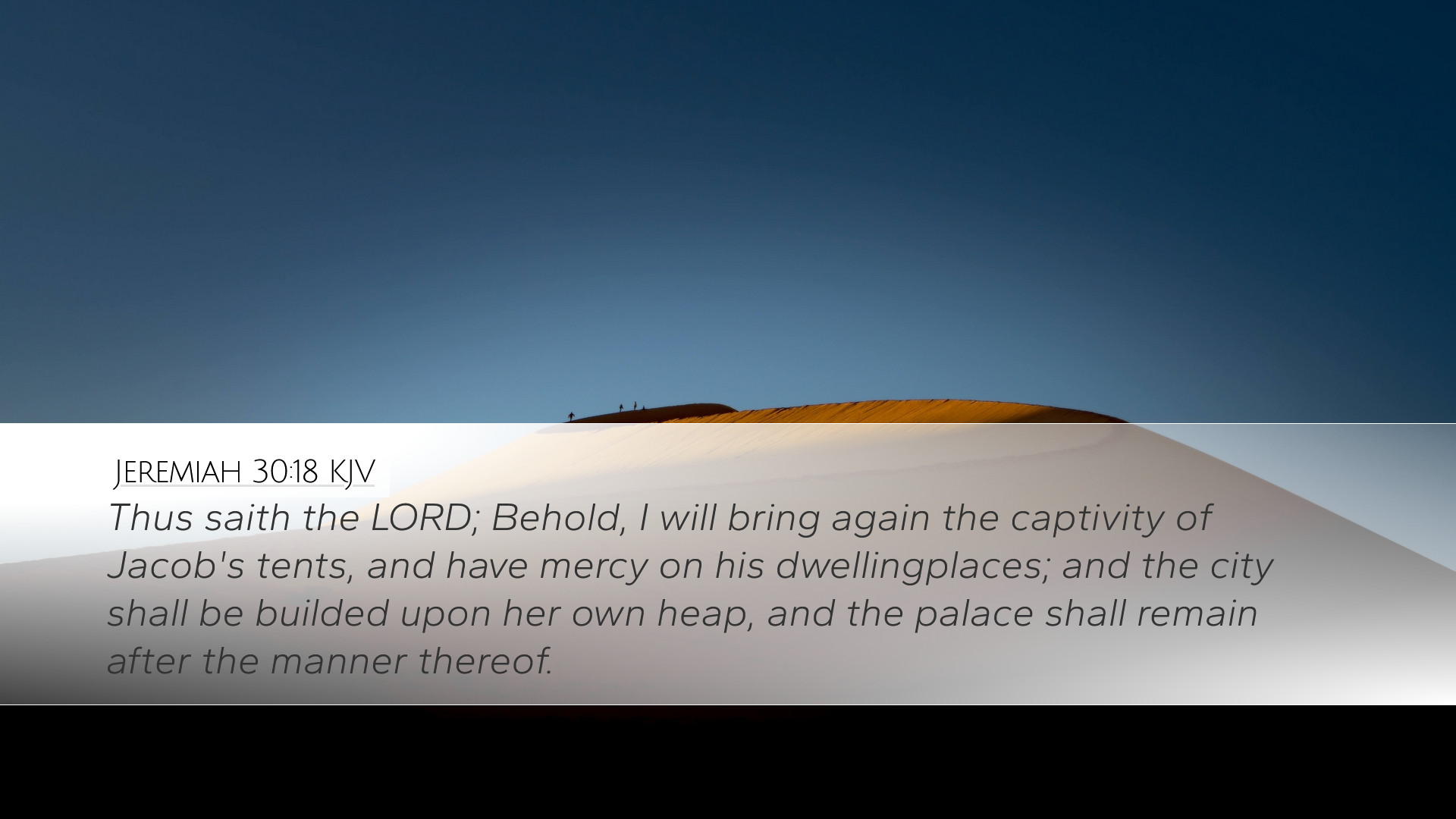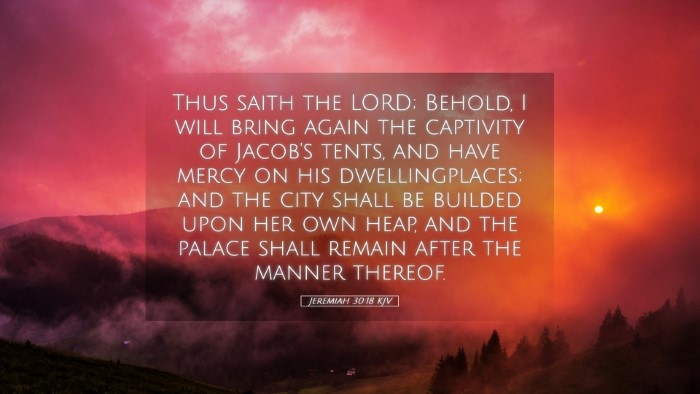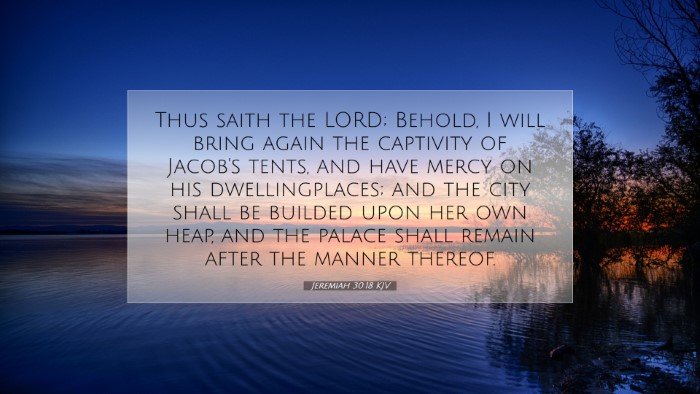Commentary on Jeremiah 30:18
Verse: Jeremiah 30:18 - "Thus saith the LORD; Behold, I will bring again the captivity of Jacob's tents, and have mercy on his dwellingplaces; and the city shall be builded upon her own heap, and the palace shall remain after the manner thereof."
Introduction
The Book of Jeremiah is a profound text that addresses the themes of judgment, restoration, and the enduring mercy of God. In this particular verse, Jeremiah 30:18, we see a pivotal promise of restoration from the Lord. The context of this promise emerges from a backdrop of captivity and desolation, yet it resounds with hope and assurance of God’s commitment to His people.
Exegesis of the Verse
This verse serves as a declaration of the Lord’s intention to restore Israel, particularly focusing on both the physical and spiritual restoration of Jacob’s descendants. The phrase “bring again the captivity of Jacob’s tents” can be understood as God’s initiative to bring His people out of exile and back to their homeland.
1. The Nature of Restoration
The restoration promised in this verse is multifaceted. It encompasses not only the return of the people but also a rebuilding of society and culture. Matthew Henry notes that the “tents” represent the families and dwelling places of the Israelites, highlighting the communal aspect of restoration. God's mercy is evident as He chooses to rebuild what was broken, signifying a return to stability and normalcy.
2. God’s Mercy and Compassion
The element of divine mercy is a critical aspect of this promise. Albert Barnes emphasizes that the mercy of God is central to the restoration theme in Jeremiah. Despite the disobedience and rebellion of the people, God’s steadfast love shines through. This underscores a theological point that human infidelity does not thwart divine faithfulness.
3. The City and the Palace
The latter part of the verse speaks of the city and palace being rebuilt on their former sites. Adam Clarke elaborates on this by suggesting that the mention of the “city” and “palace” signifies not just physical structures but also the reinstatement of political and spiritual order. The “heap” refers to the destruction left in the wake of Babylonian conquest, yet God promises revival from those very remnants. This rebuilding is indicative of hope and renewal.
Theological Implications
This verse carries profound theological implications for understanding God’s character and His dealings with humanity. It opens the door to examining the continuity of God’s redemptive plan throughout Scripture.
1. The Faithfulness of God
God’s faithfulness is accentuated by His promise to restore Jacob's tents. This resonates with the covenant faithfulness of God, reminding leaders and scholars alike that while humanity may stray, God remains true to His promises. The restoration of Jerusalem parallels later New Testament themes where God’s ultimate plan unfolds in Christ's redemption.
2. Hope in Despair
In times of despair, this passage serves as a beacon of hope. Pastors and spiritual leaders can draw upon this text to inspire congregations facing their own trials, emphasizing that God can bring beauty from ashes. The consistent theme of restoration throughout the biblical narrative encourages believers to trust in God’s timing and purpose, no matter the circumstances.
3. Community and Restoration
The communal aspect of restoration is vital. The focus on “Jacob’s tents” reflects God’s attention to families and relationships, suggesting a holistic approach to restoration. The rebuilding of a society is not merely individual but communal, urging leaders to foster environments that promote unity and healing in their communities.
Practical Applications
This verse can serve as a guiding principle for pastors and theologians in their ministry and teaching. Below are several practical applications derived from Jeremiah 30:18.
- Emphasize Restoration: Pastors can teach about God’s desire for restoration in the lives of individuals and communities, fostering a message of hope.
- Covenant Faithfulness: Highlighting God’s faithfulness, particularly in tough situations, can strengthen the belief in God’s unchanging nature among congregants.
- Community Engagement: Encourage church members to engage in community service and outreach, reflecting the communal rebuilding depicted in this passage.
- Preaching Mercy: Messages that focus on God’s mercy remind the faithful of the grace and forgiveness available to all, regardless of past failures.
Conclusion
Jeremiah 30:18 encapsulates a powerful message of hope, restoration, and divine mercy that transcends time and context. By blending insights from public domain commentaries, this analysis serves as a meaningful resource for pastors, students, theologians, and Bible scholars. It encourages a deeper understanding of God’s character and the overarching narrative of redemption that runs throughout Scripture.


